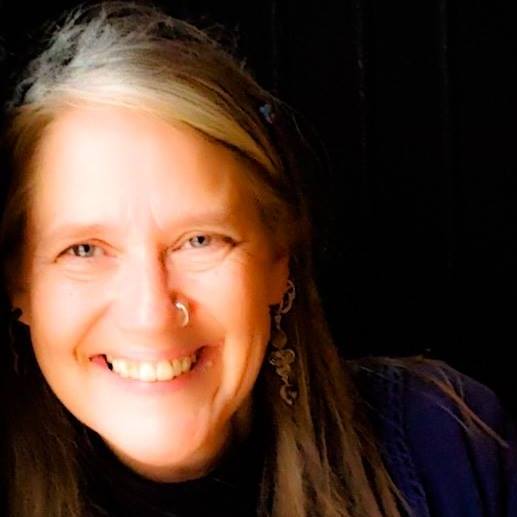In his recent podcast with the Religious Studies Project, Professor Juan Fonseca details the introduction, subsequent rise, and political and theological influence of two distinct forms of Non-Catholic Christianity in Peru: Protestantism and the Pentecostal Movement.
The Latin American religious, political, cultural, and social landscape was irrevocably altered (arguably destroyed) in the early-16th century by the invading Spanish Conquistadors who forced their Roman Catholic faith onto the indigenous people. Peru, which claimed its independence as a nation in 1821, has long-identified as a Roman Catholic nation. A 2007 census confirmed that 81.3% of Peruvians follow their own amalgamated form of Roman Catholicism which continues to be a blending of traditional Roman Catholic (and conservative) values mixed with polytheistic indigenous beliefs. And while the modern religious and political landscape of Peru was wholly shaped by the invasion of Roman Catholicism, the introduction of Non-Catholic Christianity through an influx of Protestant Missionaries in the early 20th century, would further alter the political and religious landscape of Peru creating an ultra-far-Right, militant conservative agenda.
Fonseca speaks about the missionaries believing themselves to be the ‘carriers of civilisation’ and offering a ‘confessional alternative’ to Catholicism. He relates how Protestant and then also Pentecostal missionaries brought with them an American ‘social gospel’ that sought out disenfranchised parts of the community and spoke loudly about feminist issues, trade unions, labour movements, and worked with the indigenous communities. Fonseca identifies the Protestant missionary social approach to religion, which started in the 1940s, as the ‘turning point to conservatism’ in Peru. Fonseca tells how this social gospel missionary movement was quickly followed by a massive influx of missionaries who had been expelled from communist countries. Already aligned with a social mission, they swiftly added their large numbers to the conservative majority. These missionaries, per Fonseca, ‘affected politics which became more conservative and fundamental’ guided by strict traditional theological values.
At the centre of these fundamental theological values are contemporary political issues such as abortion and gay marriage. Fonseca points out that conservative political pressure is ‘so strong it manages to neutralise all voices of sympathy’ to LGBTQ and feminist causes. He goes on to say that the ‘ultra conservative, militant core’ is a minority in Peru but is very powerful through its dominant media presence.
Is any of this starting to sound vaguely familiar?
If so, perhaps you are wondering where is the #Resistance?
Interestingly, theological opposition to the far-Right Protestant religious and political movement came from a Catholic. Father Gustavo Gutiérrez, a Peruvian philosopher, theologian, and Dominican Priest became a founder of Liberation Theology in Latin America through his 1971 book A Theology of Liberation: History, Politics, Salvation.
Quickly gaining momentum on the ground, Fonseca tells how progressives who had been ‘silenced for decades’ were beginning to build networks across Peru aligning themselves with other disenfranchised groups, liberal scholars and theologians like Father Gutiérrez who was welcomed to the Vatican by Pope Francis in 2015. However, while Liberation Theology remains a viable and growing field in theology and religious studies, its impact on the ground in Peru has dwindled. The far-Right’s hold on the political and religious climate of Peru brings with it what Fonseca refers to as ‘a common misconception that being Christian means being politically conservative’.
Olivia Singer writes:
Despite its ultimate fall in popularity, liberation theology changed the role of the Church in Peru and all of Latin America forever. By giving a voice and sense of empowerment to the impoverished, liberation theology held the Church accountable for the welfare of the lower class, recognizing the essential role of social justice in Christian teachings. This movement rethought the power structures of Latin American society and showed that religion could promote highly politicized campaigns.
I can’t help but see the parallels between the Peruvian religious and political history which Fonseca outlines in his interview and the events currently taking place in the United States where religion and politics are more intricately entwined than ever before by a minority Far-Right Conservative Christian movement and its dominant media presence. This intriguing parallel makes Fonseca’s interview timely and important as history repeats itself—and, in this case, religious-political movements are repeating themselves. So not only is Fonseca’s work a fascinating glimpse into this history of Peruvian religion and politics, it also serves as a cautionary tale for its northern neighbour with some timely and valuable reminders.
- Religions can and do promote highly politicised campaigns and shape policy and society. While common knowledge, it is vital that we bear this important fact in mind with the current political and religious fundamentalist climate emerging around the globe, for it is the religious groups which are the true power behind the political face in the media. However, not all groups are equal, and the majority Christian voice can positively impact the minority far-right by reminding them of the importance of social justice in Jesus’ preaching.
- Minority groups can appear to be the majority voice if they dominate the media. Once, this meant that only the rich had a voice, but with the power of social media, the power centre has shifted and must constantly be utilised as a viable and positive tool for social and political change.
- Religious movements that use a ‘social approach’ are immensely more powerful at shaping politics and policies than faith traditions that utilise a ‘rational approach.’ The same would hold true for political movements. Take note, #Resistance fighters.
- Liberation movements arise from the strangle-hold of conservative fundamentalism, but they must stay in the public eye and be continually active to help influence politics and policies. Their chances of long-term success and relevance depends largely on their ability to network with other organisations and movements with whom they share common goals.
Fonseca’s interview outlines a complex political and religious history for Peru, but it also serves as a cautionary tale and guide for its northern neighbours.
References
Singer, Olivia. Liberation Theology in Latin America. Electronic. Brown University Library.



